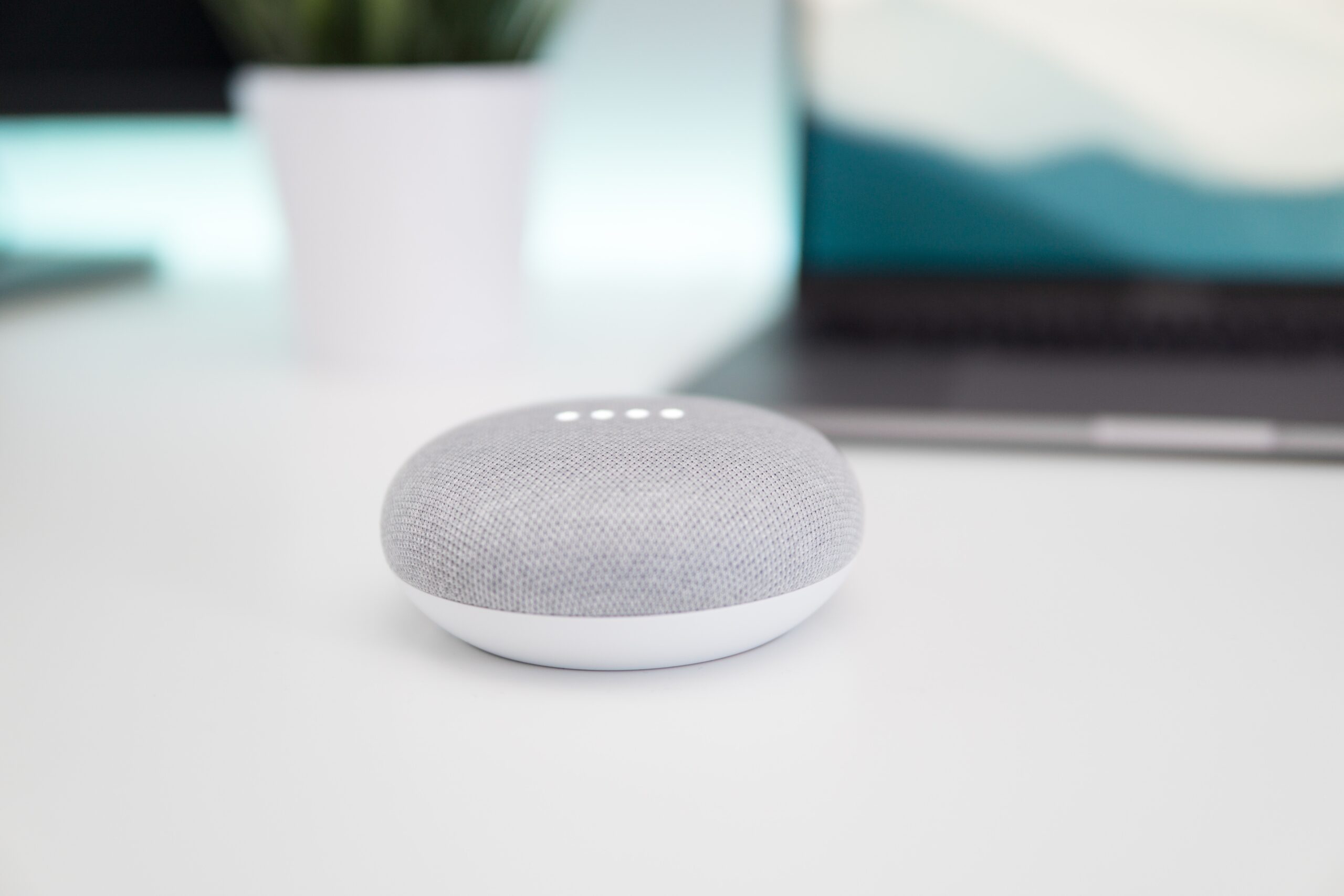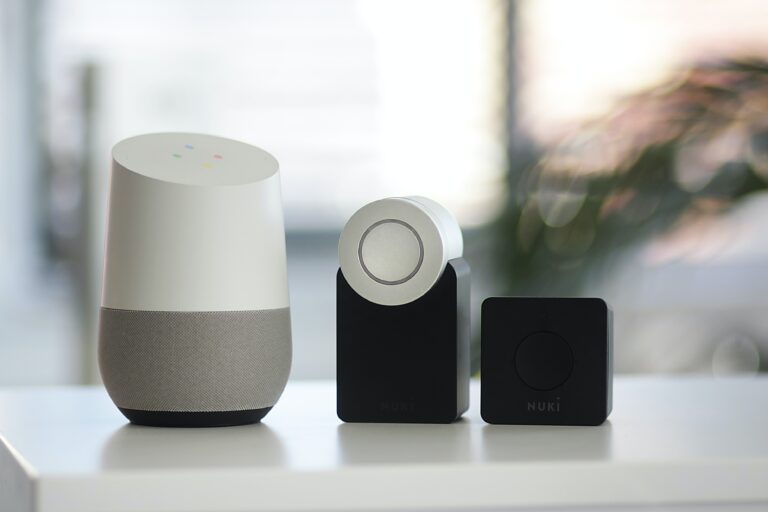One of the most remarkable innovations in recent years has been the rise of smart speakers. These intelligent devices have transformed our homes, providing entertainment, information, and a seamless way to control our connected gadgets.
But with the multitude of options available, how do you choose the right one for you? In this comprehensive guide, we will explore the world of smart speakers, dissect their features, compare top models, and help you make an informed decision.
What is a Smart Speaker?
Smart speakers are voice-activated devices equipped with virtual assistants like Amazon’s Alexa, Google Assistant, or Apple’s Siri. They are designed to perform tasks, answer questions, play music, and control smart home devices through natural language voice commands.
In recent years, they’ve become an integral part of many households, offering a hands-free and convenient way to access information and control various aspects of our lives.
Evolution of Smart Speakers
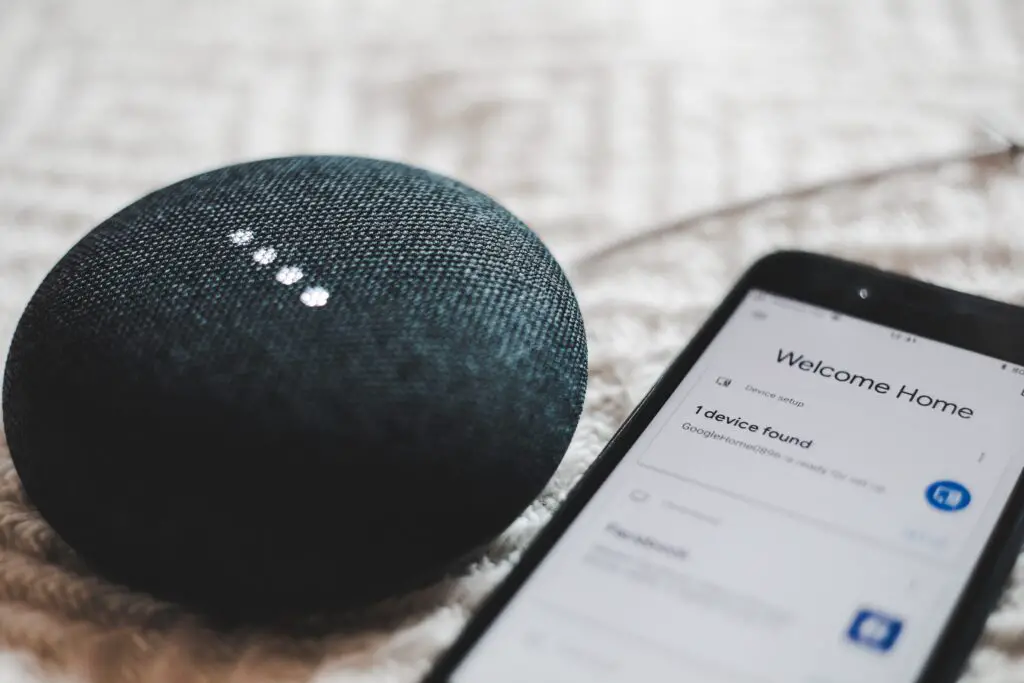
To appreciate the current landscape of smart speakers, it’s essential to understand their evolution. These devices have come a long way since their inception.
Historical Context
Smart speakers trace their roots back to the early 2010s when tech giants began experimenting with voice recognition technology. Amazon’s Echo, launched in 2014, was a game-changer, pioneering the concept of a standalone voice-controlled assistant in a speaker form factor.
Milestones in Smart Speaker Development
2014: Amazon Echo introduced the world to Alexa.
2016: Google Home made its debut with Google Assistant.
2018: Apple entered the market with the HomePod.
2020: The smart speaker market expanded with various third-party manufacturers.
Key Features of Smart Speakers
To understand which smart speaker is right for you, it’s crucial to grasp the key features that set them apart.
1. Voice Assistant Integration
1. Amazon Alexa
Amazon’s Alexa is known for its extensive third-party integrations, making it highly versatile. You can control lights, thermostats, and more using compatible smart home devices.
2. Google Assistant
Google Assistant excels in providing accurate information and integrates seamlessly with Google services like Google Calendar, Maps, and Gmail.
3. Apple Siri
Siri is deeply integrated into the Apple ecosystem, making it an excellent choice if you’re already invested in Apple products.
2. Audio Quality
The quality of sound a smart speaker produces can significantly impact your choice.
3. Sound Quality
High-end models like the Google Home Max and Sonos One offer exceptional audio quality, while budget options like the Echo Dot are suitable for casual listening.
4. Speaker Size and Configuration
Consider the size and configuration of the speaker, as it affects sound dispersion and bass response.
5. Connectivity Options
The connectivity options of a smart speaker determine how it fits into your home ecosystem.
6. Wi-Fi vs. Bluetooth
Most smart speakers connect via Wi-Fi, allowing for a broader range of functions. Bluetooth speakers are more portable but have limited capabilities.
7. Multi-Room Audio
Some smart speakers support multi-room audio, enabling synchronized playback in different rooms.
Smart Home Integration
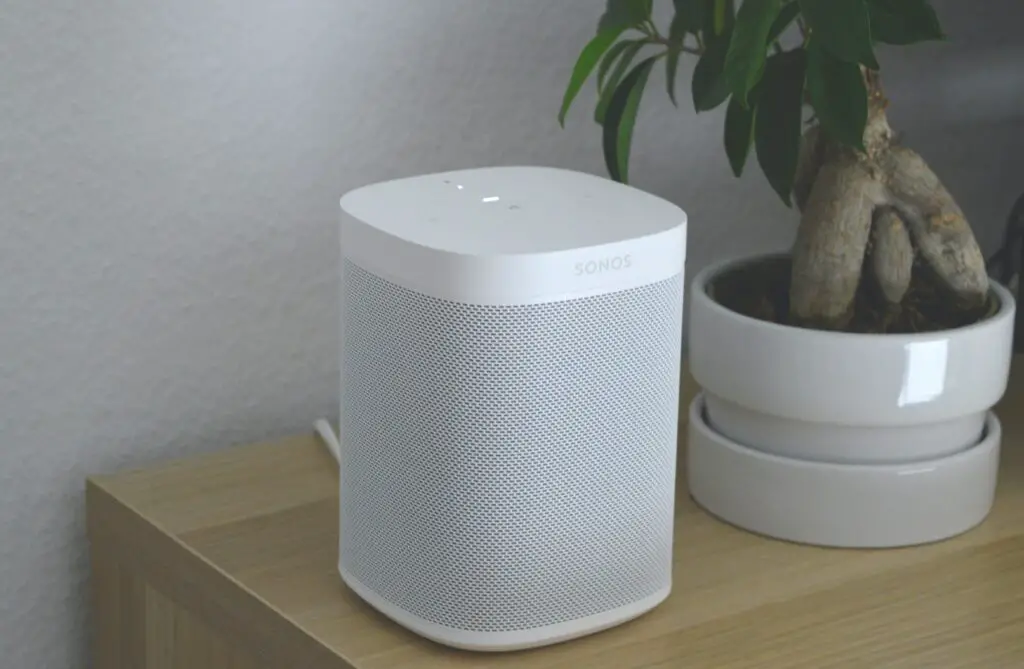
1. Compatibility with Smart Devices
Ensure your chosen speaker is compatible with your existing smart home devices. Amazon and Google devices usually support a wide range of brands.
2. Home Automation Capabilities
Some smart speakers offer advanced home automation features, allowing you to create routines and schedules.
3. Privacy and Security Concerns
Be aware of the privacy policies and security measures of the chosen smart speaker. Understand how your data is collected and used.
4. Identifying Your Needs and Preferences
Before diving into the world of smart speakers, it’s essential to assess your needs and preferences.
5. Assessing Your Requirements
Consider how you intend to use the smart speaker. Is it for playing music, getting weather updates, or controlling your smart home?
The size of the room and where you plan to place the speaker can affect sound quality. Larger rooms may require more powerful speakers.
6. Budget
Set a budget that aligns with your financial resources. Smart speakers come in various price ranges.
7. Voice Assistant Preference
- Amazon Alexa: If you value third-party integrations and extensive skill options, Alexa might be your top choice.
- Google Assistant: Google Assistant excels in providing information, and it integrates seamlessly with Google’s ecosystem.
- Apple Siri: If you’re an Apple user, Siri offers a seamless experience across your devices.
8. Audio Quality Preferences
Audiophiles may prefer high-end models like the Sonos One for superior sound quality. Consider the size and configuration of the speaker, as it affects the audio experience.
9. Compatibility with Existing Smart Devices
- Smart Home Ecosystem: Ensure your chosen speaker works with your existing smart devices and integrates well with your smart home ecosystem.
- Interoperability: Some smart speakers are more compatible with certain brands or ecosystems. Check for interoperability with your preferred devices.
- Design and Aesthetics: Consider the design and aesthetics of the smart speaker, as it should blend with your home decor.
Comparing Top Smart Speaker Models
Now that you understand your needs and preferences let’s explore the top smart speaker models available.
Amazon Echo Series
- Echo Dot: The Echo Dot is a compact and affordable option suitable for smaller rooms. It offers basic smart speaker functionality.
- Echo Show: The Echo Show features a display, making it ideal for video calls, recipe displays, and more.
- Echo Studio: If you prioritize sound quality, the Echo Studio delivers high-fidelity audio with immersive 3D audio.
Google Nest Series
- Google Nest Mini: The Nest Mini is compact and budget-friendly, making it a suitable choice for those just entering the smart speaker world.
- Google Nest Hub: With a display, the Nest Hub is perfect for visual tasks like checking your calendar or viewing security camera feeds.
- Google Home Max: For audiophiles, the Home Max offers exceptional sound quality and can serve as the centerpiece of your entertainment system.
Apple HomePod Series
- HomePod Mini: The HomePod Mini offers excellent audio quality and seamless integration with Apple devices.
- HomePod: The HomePod provides top-notch audio quality and deep integration with the Apple ecosystem.
Other Notable Models
- Sonos One: The Sonos One combines smart speaker functionality with exceptional audio quality, making it a favorite among music enthusiasts.
- Bose Smart Speakers: Bose offers a range of smart speakers known for their premium sound quality and sleek designs.
- Harman Kardon Invoke: The Invoke is a stylish smart speaker with great audio quality and Microsoft’s Cortana voice assistant.
Performance and Features Analysis
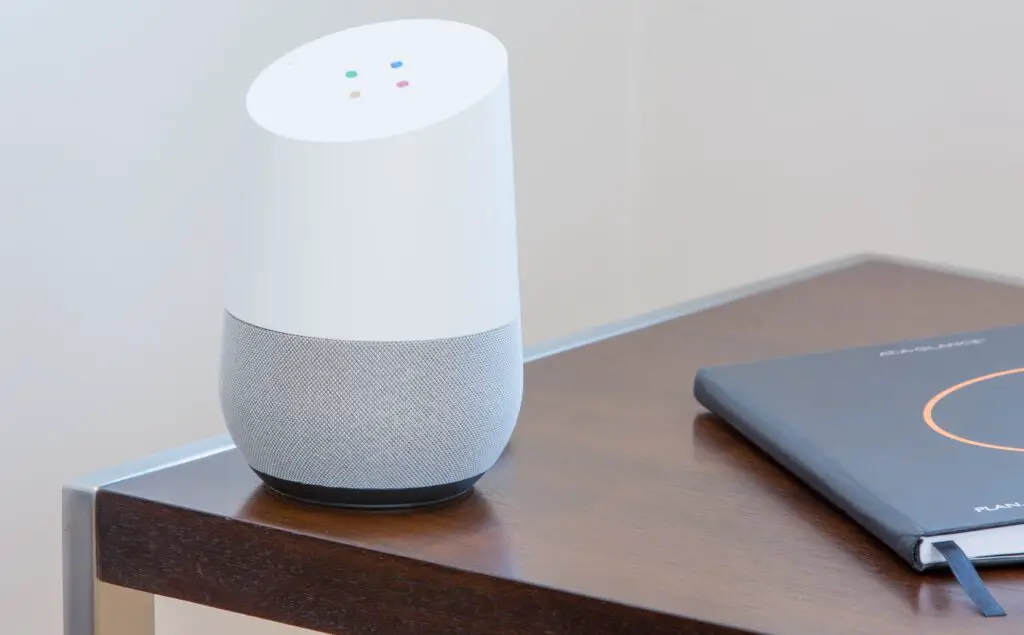
1. Voice Assistant Capabilities
- Voice Recognition: Each voice assistant has varying degrees of voice recognition accuracy. Amazon’s Alexa and Google Assistant tend to excel in this area.
- Language Support: Consider language support if you speak a language other than English. Some voice assistants support multiple languages.
2. Audio Quality Comparison
- Speaker Specifications: Check the specifications of the speaker, including wattage, number of drivers, and frequency response, to gauge audio quality.
- Music Streaming Services: Ensure your preferred music streaming service is compatible with the smart speaker. Most support popular services like Spotify and Apple Music.
3. Smart Home Integration
- Compatibility with Smart Devices: Check if your existing smart home devices are compatible with the chosen smart speaker. Amazon and Google devices generally offer broader compatibility.
- Home Automation Capabilities: Evaluate the speaker’s home automation features, such as routines and scheduling, to streamline your daily tasks.
4. Connectivity Options
- Wi-Fi vs. Bluetooth: Understand the difference between Wi-Fi and Bluetooth connectivity and which suits your needs better.
- Multi-Room Audio: If you want to play music throughout your home, look for speakers that support multi-room audio.
5. Privacy and Security Considerations
- Data Collection and Privacy Policies: Review the data collection and privacy policies of the smart speaker manufacturer to ensure they align with your preferences.
- Security Measures in Place: Check for security features like voice recognition and PIN protection to safeguard your data.
Making Your Decision
1. Creating a Shortlist
Based on your needs and preferences, create a shortlist of smart speakers that align with your criteria.
Compare the shortlisted options, taking into account factors like price, features, and compatibility.
2. Testing, if Possible
If possible, visit a store or borrow a friend’s smart speaker to experience it firsthand.
Consider the long-term viability of the smart speaker, including future updates and support.
3. Purchasing and Setup
Explore options for purchasing the smart speaker, including online retailers, electronics stores, and official manufacturer websites.
Follow the manufacturer’s instructions for setting up your smart speaker, which usually involves connecting it to your Wi-Fi network and configuring settings.
4. Troubleshooting Tips
Be prepared for potential troubleshooting issues and seek solutions in the user manual or online support resources.
Maximizing the Value of Your Smart Speaker
- Learn how to make the most of voice assistants by discovering useful commands and capabilities.
- Incorporate your smart speaker into your daily routines, from managing schedules to controlling smart home devices.
- Stay up-to-date with software updates that may introduce new features and improvements to your smart speaker.
Conclusion
Smart speakers have become indispensable companions in our homes. They offer convenience, entertainment, and a seamless interaction with our digital world. Choosing the right smart speaker, however, can be daunting, given the many options available.
As you embark on your journey to find the perfect smart speaker, remember that the choice ultimately depends on your unique requirements. Whether you prioritize audio quality, voice assistant capabilities, or seamless integration with your smart home, there’s a smart speaker out there that’s just right for you.
Frequently Asked Questions
1. Why do people want smart speakers?
People want smart speakers for various reasons. They offer convenience by providing quick access to information, entertainment, and control over smart home devices through voice commands. Smart speakers can also serve as personal assistants, helping with tasks like setting reminders and sending messages.
2. How do you choose smart speakers?
Choosing the right smart speaker involves considering factors like your primary use case, budget, room size, and compatibility with existing smart devices. Assess your needs and preferences, compare models, read reviews, and test, if possible, before making a decision.
3. Should you get a smart speaker?
Whether you should get a smart speaker depends on your lifestyle and needs. If you value convenience, hands-free control, and access to a voice assistant, a smart speaker can be a valuable addition to your home. Evaluate your requirements to determine if a smart speaker aligns with your preferences.
4. How are people using smart speakers?
People use smart speakers for a wide range of tasks, including:
- Playing music
- Getting weather updates
- Setting alarms and timers
- Controlling smart home devices (lights, thermostats, locks)
- Answering general knowledge questions
- Making shopping lists and reminders
5. Who is the target audience for smart speakers?
The target audience for smart speakers is diverse, including individuals and families. They appeal to tech enthusiasts, music lovers, busy professionals, and anyone seeking convenience and automation in their daily lives.
6. What are the characteristics of a smart speaker?
Smart speakers typically have the following characteristics:
- Voice-activated with virtual assistants
- Connectivity options (Wi-Fi and/or Bluetooth)
- Compatibility with smart home devices
- Audio quality ranges from basic to high-fidelity
- Privacy and security measures to protect user data
